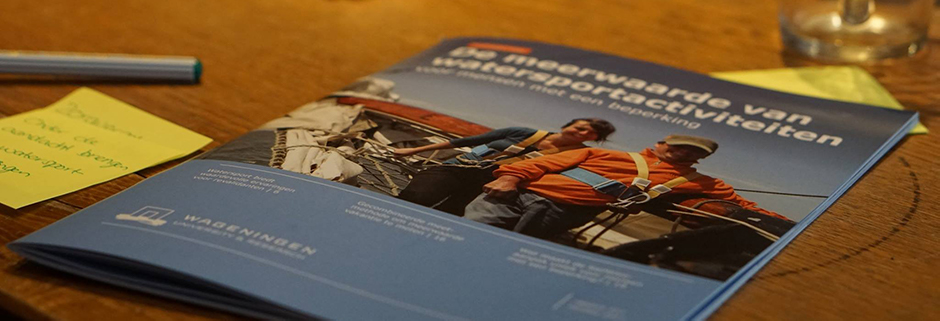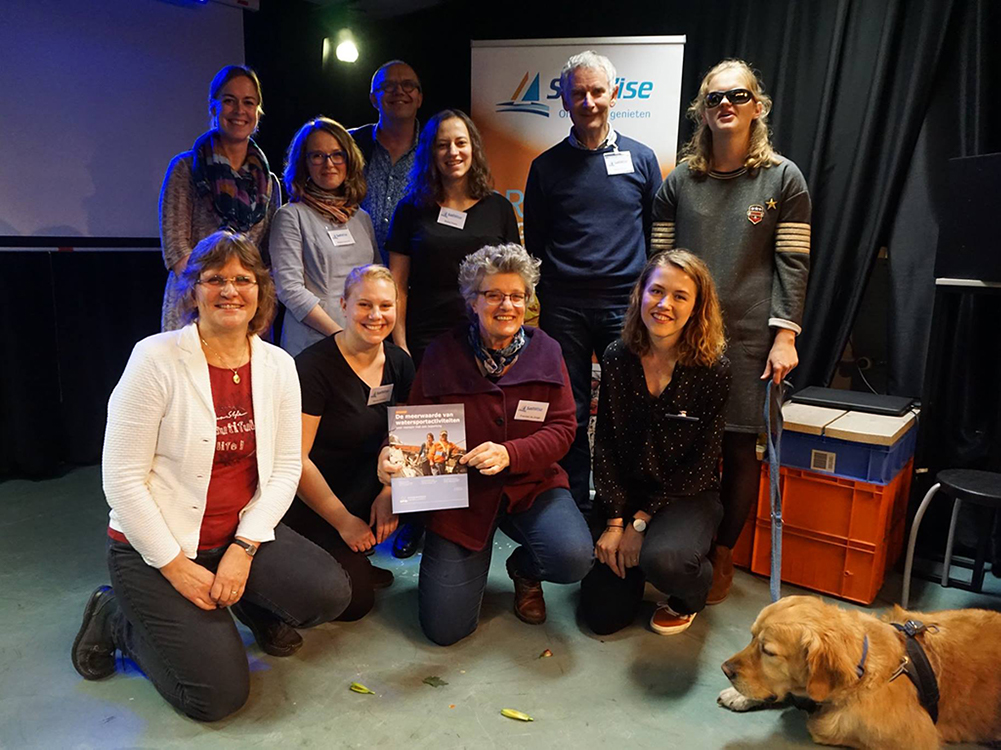Writing your thesis in the 3d year of BSc Tourism is the perfect opportunity to explore your interests. Besides a small part in the Philosophy of Science and Ethics in Tourism course, the topic of accessible tourism is not often tackled in our program. I believe it’s a shame, as the societal value can be big! This and the enthusiastic stories of Pieternel Cremers and Meghann Ormond (thesis supervisors of the BSc Tourism students in the Wageningen University Science Shop project) led me to writing my thesis about accessible tourism.
I happily graduated in August, after conducting fieldwork on a big sailing boat while volunteering on a trip for people with acquired brain injuries. But this great experience did not end there! My thesis was used for the final report of the Science Shop project, just like the theses of BSc Tourism students Eva, Julia, Judith, Nienke, alumna Paulina, and Marlijn (MSc student Health & Society). Although my thesis of 33 pages was summarized in only 1 page, still: my first official publication!
On November 16th of November a mini-symposium was organised in Amsterdam to present the final report to SailWise and to discuss the future with interested stakeholders. After 2 hours and 3 different trains I made it to 5D where the mini-symposium took place. There were many unfamiliar faces, but soon I was joined by Pieternel and Meghann, as well as the other students who contributed to the final report! Unfortunately Eva, Julia and Judith couldn’t be there because they are currently abroad. After some catching up between former SailWise participants, employees and researchers, the event officially started with a ‘key-note speech’ by Funda Müjde – comedienne and actress who is part of the Committee of Recommendations of SailWise. She shared an inspiring story of how she dealt with her disability: for example, hand-biking from Amsterdam to Istanbul in 89 days!
 After this great example of looking at abilities rather than someone’s disability, we continued with an interactive presentation on rehabilitation as well as on young participants of SailWise. This is when the Wageningen reseach team got a chance to explain the main findings, and some participants of SailWise could share their stories. These conversations were the basis for the last part of the program: brainstorm sessions! With the group that focused on youngsters, we discussed what determinants facilitate participation, and how these determinants should be reached.
After this great example of looking at abilities rather than someone’s disability, we continued with an interactive presentation on rehabilitation as well as on young participants of SailWise. This is when the Wageningen reseach team got a chance to explain the main findings, and some participants of SailWise could share their stories. These conversations were the basis for the last part of the program: brainstorm sessions! With the group that focused on youngsters, we discussed what determinants facilitate participation, and how these determinants should be reached.
Summarizing, it is not only about whether or not the youngster would like to participate in a sailing holiday and/or water sport activity. Finance (and therefore policy-makers), care-takers and family also play a big role. A key questions was: How to raise awareness that SailWise can contribute something more than ‘just a holiday’? Ideas were exchanged like ‘Floortje dicht bij huis’, participants vlogging, and sharing stories in ‘public sphere’-magazines (i.e. Libelle). We concluded that in order to truly understand what the contribution of SailWise is, one should join as a participant or as an awesome volunteer the latter was suggested for policy-makers to truly experience SailWise themselves.
At the end of the symposium, the final report was officially handed out to Menne Scherpenzeel, the director of SailWise. After a well-deserved ‘borrel’, the 4 attending students had the chance to make their debut on camera, while being interviewed by Arjaan Pellis (with a special guest-role for Owen, Marlijn’s dog).
Even in the train back towards Brabant discussions about the day were going on. And for me, this day reminded me again of why I chose this thesis topic in the first place. Disability studies is such an interesting field, with great importance. And even though the link to my current master program (Global Communication) might not be directly visible, I am considering involving it in my master thesis. It might cost me another summer holiday, but the reward will be worth it.
Curious about our findings? Check out the full report HERE!
Written by: Saskia Peters







